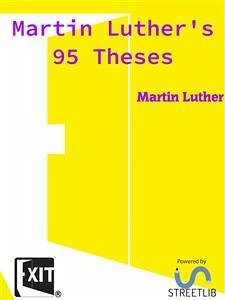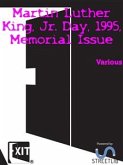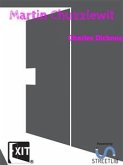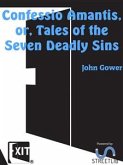DISPUTATION OF DOCTOR MARTIN LUTHER ON THE POWER AND EFFICACY OF INDULGENCES
OCTOBER 31, 1517
Out of love for the truth and the desire to bring it to light, the following propositions will be discussed at Wittenberg, under the presidency of the Reverend Father Martin Luther, Master of Arts and of Sacred Theology, and Lecturer in Ordinary on the same at that place. Wherefore he requests that those who are unable to be present and debate orally with us, may do so by letter.
In the Name our Lord Jesus Christ. Amen.
1. Our Lord and Master Jesus Christ, when He said Poenitentiam agite, willed that the whole life of believers should be repentance.
2. This word cannot be understood to mean sacramental penance, i.e., confession and satisfaction, which is administered by the priests.
3. Yet it means not inward repentance only; nay, there is no inward repentance which does not outwardly work divers mortifications of the flesh.
4. The penalty [of sin], therefore, continues so long as hatred of self continues; for this is the true inward repentance, and continues until our entrance into the kingdom of heaven.
5. The pope does not intend to remit, and cannot remit any penalties other than those which he has imposed either by his own authority or by that of the Canons.
6. The pope cannot remit any guilt, except by declaring that it has been remitted by God and by assenting to God's remission; though, to be sure, he may grant remission in cases reserved to his judgment. If his right to grant remission in such cases were despised, the guilt would remain entirely unforgiven.
7. God remits guilt to no one whom He does not, at the same time, humble in all things and bring into subjection to His vicar, the priest. 8. The penitential canons are imposed only on the living, and, according to them, nothing should be imposed on the dying.
9. Therefore the Holy Spirit in the pope is kind to us, because in his decrees he always makes exception of the article of death and of necessity.
10. Ignorant and wicked are the doings of those priests who, in the case of the dying, reserve canonical penances for purgatory.
11. This changing of the canonical penalty to the penalty of purgatory is quite evidently one of the tares that were sown while the bishops slept.
OCTOBER 31, 1517
Out of love for the truth and the desire to bring it to light, the following propositions will be discussed at Wittenberg, under the presidency of the Reverend Father Martin Luther, Master of Arts and of Sacred Theology, and Lecturer in Ordinary on the same at that place. Wherefore he requests that those who are unable to be present and debate orally with us, may do so by letter.
In the Name our Lord Jesus Christ. Amen.
1. Our Lord and Master Jesus Christ, when He said Poenitentiam agite, willed that the whole life of believers should be repentance.
2. This word cannot be understood to mean sacramental penance, i.e., confession and satisfaction, which is administered by the priests.
3. Yet it means not inward repentance only; nay, there is no inward repentance which does not outwardly work divers mortifications of the flesh.
4. The penalty [of sin], therefore, continues so long as hatred of self continues; for this is the true inward repentance, and continues until our entrance into the kingdom of heaven.
5. The pope does not intend to remit, and cannot remit any penalties other than those which he has imposed either by his own authority or by that of the Canons.
6. The pope cannot remit any guilt, except by declaring that it has been remitted by God and by assenting to God's remission; though, to be sure, he may grant remission in cases reserved to his judgment. If his right to grant remission in such cases were despised, the guilt would remain entirely unforgiven.
7. God remits guilt to no one whom He does not, at the same time, humble in all things and bring into subjection to His vicar, the priest. 8. The penitential canons are imposed only on the living, and, according to them, nothing should be imposed on the dying.
9. Therefore the Holy Spirit in the pope is kind to us, because in his decrees he always makes exception of the article of death and of necessity.
10. Ignorant and wicked are the doings of those priests who, in the case of the dying, reserve canonical penances for purgatory.
11. This changing of the canonical penalty to the penalty of purgatory is quite evidently one of the tares that were sown while the bishops slept.









